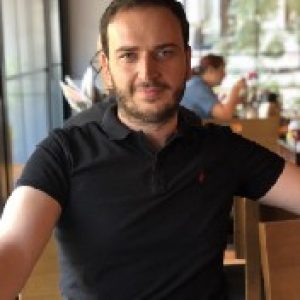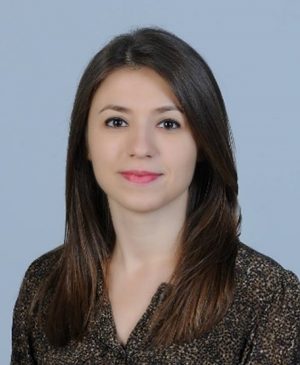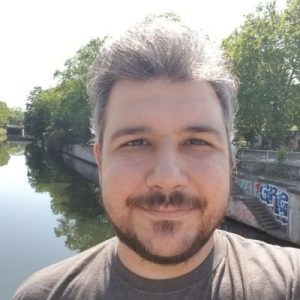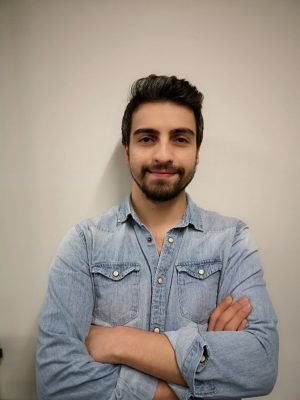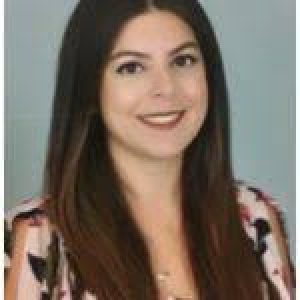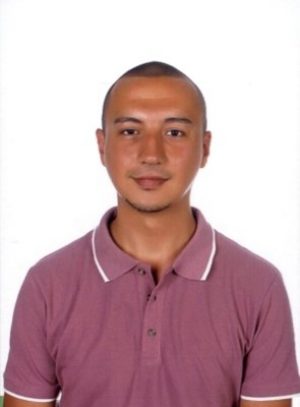The career fields of our statistics graduates are quite diverse. They can work in any sector where data is involved. Typically, they work in the banking sector, actuarial and insurance fields, information technology departments, and software companies.
They hold positions such as:
Statistician, System analyst, Data scientist, Process analyst, Data miner, Data analysis expert, Operations manager, Reporting manager, and other similar titles.
Deniz DOĞU
Parta, Business Analyst
“My experience at Dokuz Eylül University’s Statistics Department provided me with a university life that I enjoyed and gained a lot from. The analytical perspective, problem-solving skills, project planning processes, methods I used during my senior project, and the award I received as a result allowed me to take myself one step forward. The jury members I met in the Hackathons I participated in during my final years at school provided a great opportunity to expand my network in the business field. Through their guidance, I eventually found myself at the Computer Engineering Career Day. With my curiosity and enthusiasm, I managed to secure an internship in the software department at Parta Networks, a company in the İYTE Teknopark, during the interview process. While thinking about how I could showcase myself at work, I decided to utilize the LaTeX program, which I used to write my senior project thesis. Thanks to the challenging journey of learning to write reports, I had no trouble during my internship. At Parta Networks in the cybersecurity sector, I was hired for a position that didn’t exist before. Now, I work as a Business Analyst in the R&D department of Parta Networks. The fact that my department constantly updates the agenda and improves the training plan with applications that will be useful in business life has been very helpful for me to show that I follow the industry in my professional life. In addition to all of this, I believe the most important thing was that the presentations and explanations I constantly made at school allowed me to improve my presentation and communication skills. I learned very well how to learn a topic I didn’t know on my own, how to reach information in the right ways, and what the ethical and moral aspects of a statistician should be. All of these competencies have allowed me to start my career advantageously. I will continue to learn, research, and teach.”
Güray ATAMAN
Sahibinden.com, Data Scientist
“For a data scientist, decision-making on needs/problems, cleaning the data obtained within the framework of the problem/need and preparing it for analysis, the modeling process, and interpreting the outputs and results of the model correctly are crucial topics. If you want to stand out in this field, you should highlight your statistical knowledge. The education and statistical knowledge I received from Dokuz Eylül University’s Statistics Department allow me to excel in my profession. Many of the things I learned, the seemingly small but actually very important details given by our professors in classes, especially helped me to quickly identify problems in projects and find solutions to the problems I encountered.
Furthermore, I believe that the necessity of continuous research and self-improvement that I became aware of during the education process played an important role in my personal development and in keeping up with the agenda.”
Duygunay SELÇUK
Paşabahçe, Global Commercial Marketing Manager
“From my first year at Dokuz Eylül University’s Statistics Department to my final year, I encountered a structure that always captured my interest and taught me what I wanted in life. As numbers, formulas, and equations were interpreted, imbued with meanings, and results emerged, everything became more beautiful. Numbers ceased to be mere assumptions for me; they merged with real life, directing my life path. I saw the stages through which a research is conducted, the difficulty involved, and how it comes together, teaching me patience. I learned to work in groups, to lead people together. I learned to make mistakes, turn back, and never give up. In terms of career, participating in various projects, being involved in every stage from how data is collected to how it is analyzed and interpreted, and my teachers’ encouragement and constant support in this regard have been my greatest asset in my professional life. Thanks to the education I received and my teachers, when they asked me to do data analysis in the field I applied for a job, it helped me surpass everyone. I am still working in the same company, it’s been 2 years. Being able to think analytically, add interpretation, and read data really broadens one’s perspective. I saw the importance of data for a company; if you can gather data, draw conclusions, and provide interpretation, a lot of great opportunities come your way. All of this happened thanks to the education I received and, most importantly, my teachers. I am truly grateful to them for showing us the warmest form of learning and for the values they instilled in us :)”
Feyza ERSÖZ
Paşabahçe, Data Analyst
Throughout my time studying at DEU Statistics Department, I always felt like I was in the right place. The main reason why this department felt right for me was because it was at Dokuz Eylül University. The education provided and the approach of my teachers played a significant role in my development. There was always a structure geared towards applying what we learned. The projects assigned, the work environments, group activities, and the guidance of the professors contributed to my development in terms of managing tasks and relationships, and it instilled a sense of responsibility in me. It enabled me to think more analytically in my professional life and showed me the field where I wanted to focus and where I felt fulfilled. Thanks to the comprehensive education we received, I had the opportunity to evaluate and choose from various fields that could come my way. Even in my current job, I can conduct analyses and make inferences based on cause-and-effect relationships, all thanks to the education I received. I always recognize and convey the value that my school and department added to me in every opportunity and every environment I find myself in. I know that all of this is thanks to the education I received and, most importantly, my teachers, and I sincerely thank all of them.”
Gamze GÜLER
Çağdaş Kablo, Reporting Officer
“While university life itself contributes significantly to personal development, studying in the Statistics Department makes it impossible not to add something to your life, especially if you are from a numerical background.
Firstly, your numerical thinking skills improve. Thanks to the courses you take from the first year onwards, you acquire analytical thinking ability, which everyone talks about but not everyone can fully respond to when asked. Because your courses greatly assist in developing this aspect. Through group work, final projects, you find yourself involved in teamwork, realizing that if you cannot be a part of the team, the course will not go well for you. And in the end, you learn to be a team player. At the same time, exams, different projects or assignments teach you how to manage time. Even if your language skills are not very good, you improve through your courses. Personal characteristics contribute to this as well, affecting your professional life. It’s quite normal for most people to struggle at the beginning of their work life, when they first sit at the computer in the workplace. But the lessons learned, the education we received help us overcome this period quickly. For example, the Excel or SPSS-like programs used in our department’s education. (I would like to say, based on the final project I did with my friends, that most companies require employees who know Excel.) Even if the place you work does not directly relate to our field of study, you are using a program, and the logic of working/using it is similar. Excel is already a whole world in itself, and if you need to make a report, you can use it first. You acquire the ability to scrutinize every problem or issue that comes your way in your memory to the finest detail because four years add these to you. And much more… All of these are possible thanks to enlightening and high-quality educators. Because these educators push you to think, not to memorize. Thus, you add many features to both your personality and your work life and graduate. At least, that’s how it was for me. I hope that each student within the DEU Statistics Department influences them at least to this extent.”
Ayhan Fuat ÇELİK
Adspert, Software Engineer
“Today, almost every phenomenon we encounter in the world either contains a certain level of uncertainty or the chaotic nature of the system that forms it forces us to establish a model containing uncertainty. Therefore, statistics, or the science of uncertainty, plays a key role in many fields ranging from finance to high-energy physics, from business analytics to cancer research. In explaining the changes, modeling, comparing the models, and conveying the results in each of these areas, the statistical tools used and your ability to use these tools developed throughout your undergraduate education stand out as a distinguishing feature.
The greatest contribution of the statistics department to my career as a machine learning software engineer has been in the areas of modeling, critical approach to existing models, and finding the power balance between simple and complex models. I often find that many pieces of information that I found simple or insignificant, which are very fundamental in statistics and perhaps learned in the first year, have provided me with a different perspective and have given me advantages in critical places. In addition, the emphasis on programming and foreign language during my undergraduate education, the importance given to applications, and working with a wide variety of datasets have provided me with significant contributions.”
Sabri VERSAN
Bahçeşehir Üniversitesi, Digital Marketing Specialist
“First and foremost, I believe that Statistics is a science that should be made mandatory for everyone to learn. People are gradually beginning to understand the value of data, and as a result, they are now also storing and extracting data. The only field that can fill the gap created by this is Data Analysis and Data Mining, which can be achieved through Statistics. By storing and extracting every piece of data that emerges, we will be much more successful in shaping the future (of a product or service). DEU is a department that has provided me with all of this knowledge, as well as the feelings I have experienced with its teachers and students. The warm connection between students and, more importantly, among all academic staff, brought me one step closer to this family. I gained the closeness and sense of family that arises when we can create this warm communication in our professional lives from the Statistics Department at DEU. Now, I am conducting new market research at Bahçeşehir University International Office, and Statistics constitutes a large part of my working area while doing this. DEU Statistics not only prepares you for professional life but also for life itself.”
Tuğçe EKERER
DCS Commun. Center, Operations Manager
“Since my childhood, my favorite subject has always been mathematics. It’s crucial for a person to do what they love and choose the field they enjoy the most. That’s why I chose the Statistics Department at Dokuz Eylül University. The Statistics Department provided me with the skills to analyze data, think analytically, and interpret numbers correctly, which I can use in my professional life. Currently, I work in the reporting department of a private company.
Statistics is a method that emerges from the combination of many different sciences. It involves economic, software, and data processes, decision support, analytics, and analysis. The value here depends on how you utilize the education you received at university because it gives you important skills like analytical thinking. It might even allow you to see what will happen next by providing you with the answer people want to learn. Therefore, with analysis methods, findings, and approaches, you can work in all positions where you can find the answer to this question.”
Uğur ERGÜN
Turkish Metal Industrialists’ Union, Research and Data Analysis Specialist
“Hello,
In today’s world, we often come across popular concepts in newspapers, social media, business blogs, and magazines. Terms like artificial intelligence, industry 4.0, machine learning, and blockchain make headlines, and while it’s uncertain whether they would be as popular if they had the word ‘Statistics’ in them, it’s an undeniable fact that all the methods they involve fall under the subject of ‘Statistical Science’. Many institutions or individuals who apply or attempt to apply these concepts often refer to ‘shaping the future’ when talking about them. Most likely, in the not-so-distant future, we will witness someone who changes the future, and that someone will be a statistician.
I graduated from DEU Statistics Department in 2011. I gained experience in various fields such as automotive, telecommunications, and civil society organizations. The most important thing I learned from my department is ‘to question’, in other words, ‘to learn how to learn’. After four years spent with learning methods that encourage critical thinking, I owe my ability to easily adapt to the unknown, to apply and develop it in different fields, to the invaluable and respectable professors and the teaching methods they adopted. With gratitude and love…
In the region where we live, one of the most enjoyable departments to study in is still the Statistics Department, and I can recommend it to my valuable friends who are still studying or are candidates for graduation. What I can recommend to them is this:
Let’s always appreciate the value of the golden bracelet on our wrist. However, let’s not forget that merely knowing ‘Statistics’ will not allow us to leave Tınaztepe and change the future. We must also be curious about different areas where we can shape our surroundings using the tools of ‘Statistical Science’ and constantly renew ourselves.”



